Since 2019, NCAPPS has provided over 6,500 hours of in-depth technical assistance to state agencies, territorial governments, and tribal governments to advance person-centered thinking, planning, and practice to support people with disabilities and older adults with long-term service and support needs. NCAPPS currently offers free short-term direct technical assistance to states experiencing significant challenges implementing person-centered planning consistent with the Home and Community-Based Services (HCBS) Final Rule. To apply for technical assistance, download, complete, and submit the application form to NCAPPS per the instructions on the form.
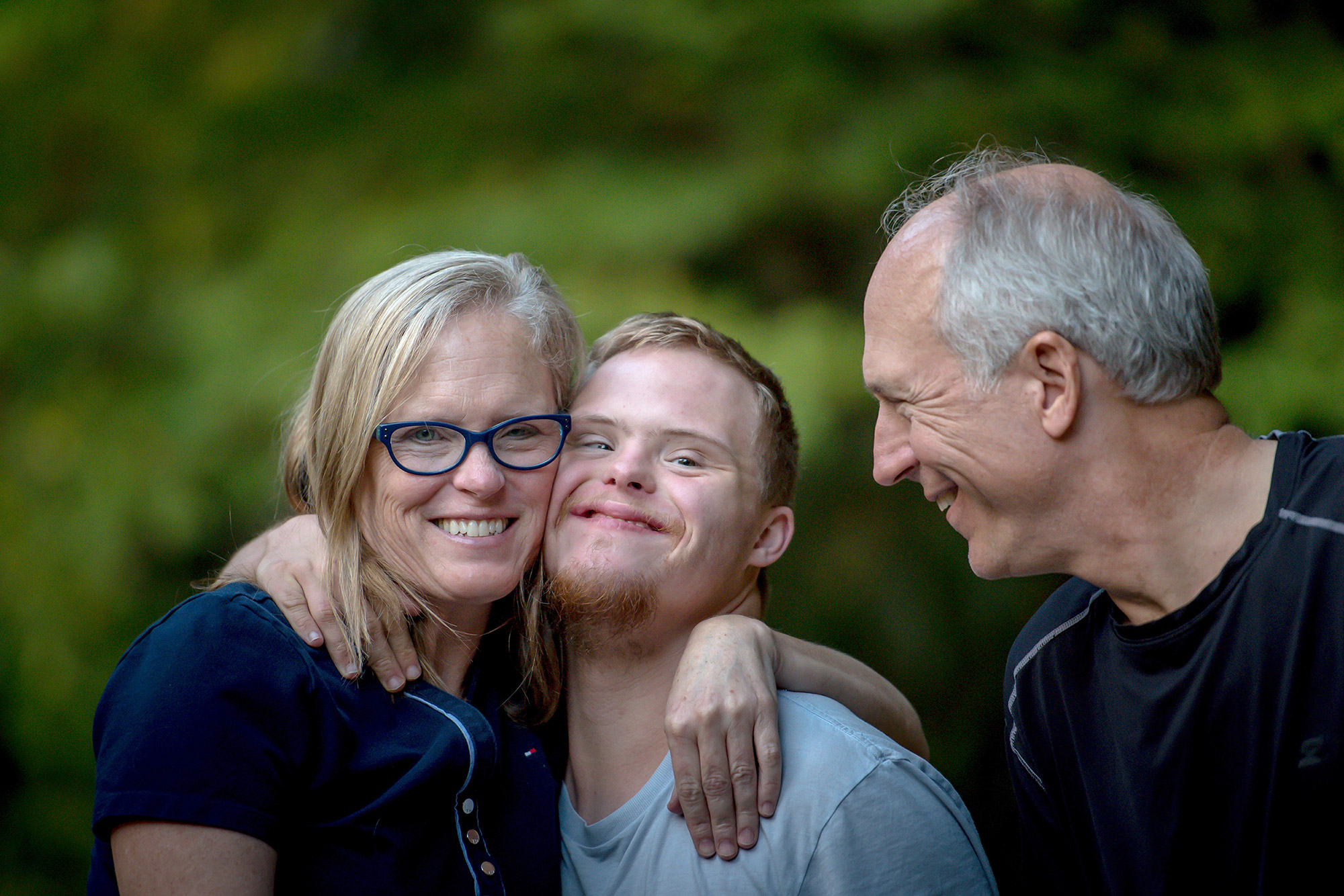
| State | Lead Agency |
|---|---|
| Alaska | Alaska Senior and Disabilities Services |
| Colorado | Colorado Colorado Department of Health Care Policy & Financing (HCPF) |
| Delaware | Delaware Division of Services for Aging and Adults with Physical Disabilities (DSAAPD) |
| Georgia | Georgia Division of Aging Services (DAS) and Brain and Spinal Injury Trust Fund Commission (BSITFC) |
| Iowa | Department on Aging |
| Kentucky | Department for Aging and Independent Living (DAIL) |
| North Dakota | Department of Human Services |
| Puerto Rico | Puerto Rico División de Servicios a las Personas con Discapacidad Intelectual (DSPDI) |
| Utah | Division of Services for People with Disabilities (DSPD) |
| Virginia | Office of Recovery Services (ORS), Department of Behavioral Health Developmental Services (DBHDS) |
Download a summary of the Year 3 NCAPPS technical assistance activities
Download a summary of the Year 2 NCAPPS technical assistance activities
Download a summary of the Year 1 NCAPPS technical assistance activities
| State | Lead Agency |
|---|---|
| Alabama | Alabama Department of Mental Health (DMH) |
| Colorado | Colorado Department of Health Care Policy and Financing (HCPF) |
| Connecticut | Connecticut Department of Aging and Disability Services (ADS) |
| Georgia | Georgia Department of Human Services (DHS) Division of Aging Services (DAS) |
| Hawaii | Hawaii Department of Human Services (DHS) Med-QUEST Division |
| Idaho | Idaho Department of Health and Welfare, Division of Medicaid |
| Kentucky | Kentucky Department for Aging and Independent Living (DAIL) |
| Montana | Montana Department of Public Health and Human Services (DPHHS) Senior and Long Term Care |
| North Dakota | North Dakota Department of Human Services (DHS) |
| Ohio | Ohio Department of Medicaid (ODM) |
| Oregon | Oregon Department of Human Services (DHS) Aging and People with Disabilities (APD) |
| Pennsylvania | Pennsylvania Department of Aging (DOA) Aging and Disability Resource Office |
| Texas | Medicaid and CHIP/ Policy and Program Development/ Texas Health and Human Services |
| Utah | Utah Division of Services for People with Disabilities (DSPD) |
| Virginia | Virginia Department for Aging and Rehabilitative Services (DARS) |
The Pennsylvania Department of Aging presented a three-part webinar series to explain how Pennsylvania professionals infuse person-centered practices into every aspect of person-centered counseling (PCC). More than 200 people from the PA Link Aging and Disability Resource Centers (ADRC) Network attended the 90-minute series kickoff, presented by NCAPPS Subject Matter Expert D. Pearl Barnett, MPA—the deputy director of operations at ADvancing States. The webinar began with an overview of person-centered practices and the No Wrong Door framework through a federal lens. The presentation outlined the processes of person-centered counseling in a No Wrong Door system such as the PA-LINK ADRCs.
Referencing the Five Competency Domains for Staff Who Facilitate Person-Centered Planning, a recently released NCAPPS product, Pearl addressed the essential competencies and their use throughout the components of person-centered counseling. Participants explored how to use the PA-Link PCC tool to identify people needing person-centered counseling, highlight the person’s goals and objectives, document an action plan, and ensure respect of rights and informed decisions about supports and services. At the end of the presentation, participants were given guidance on communication techniques and tools to better facilitate person-centered practices in Pennsylvania.
PA-NCAPPS team members Dawn Brown and Linda Yeomans followed with webinars on PCC Frequently Asked Questions and PCC Refreshers. All of the webinars in the series were well attended and received, and participants noted the usefulness of the content to their work. As the Pennsylvania Department of Aging continues to advance person-centered practices systemwide, the front door where people discover services and supports in Pennsylvania has been strengthened.
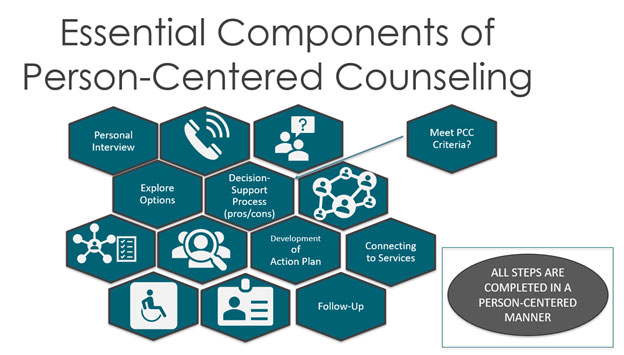
In 2020, Alabama’s Department of Mental Health, Division of Developmental Disabilities (ADMH) began a complete transformation of its waiver programs. The transformation is taking place with NCAPPS technical assistance and builds on previous foundational work.
ADMH’s unified vision:
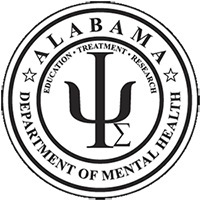
By 2025, Alabamians receiving support through the waiver will be engaged and empowered to build a plan and vision for their own life within the communities they live. This will occur through an easily facilitated approach to Person-Centered Planning where individuals have a voice, are informed of all possibilities, and experience dignity of risk as they reach their life goals.
Recent achievements include:
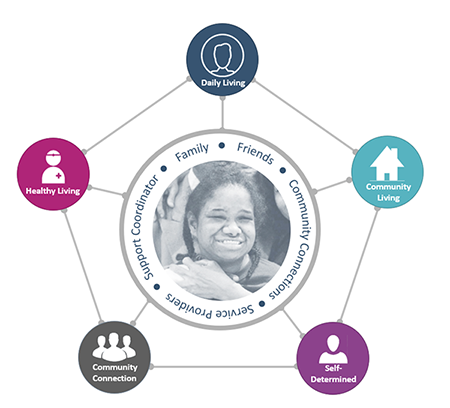
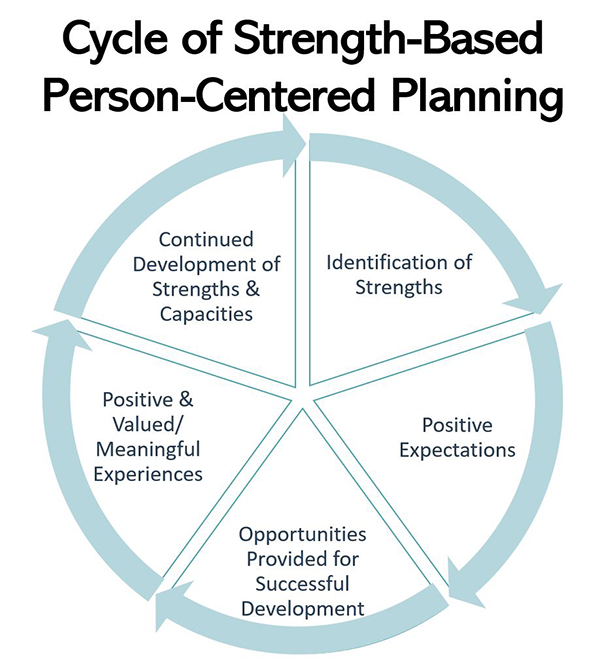
In 2021, the transformation continues with a focus on engagement and communication, quality program metrics, and Support Coordinator mentorship and ongoing learning.
Alabama’s Person-Centered Planning Strategic Steering Committee is proud of its achievements and looks forward to ongoing successes. They offer the following observations, which showcase the collective passion and energy across Alabama:
The opportunity for the individuals we support to drive and define planning as the center and the focus of this work, and seeing the transformation, is truly inspiring.
~ Terry Pezent, ADMH’s Associate Commissioner
The Utah Division of Services for People with Disabilities (DSPD) created their Be Informed and Be Involved webpage as a one-stop shop for self-advocates and family members of people with disabilities to remain up to date on changes happening at DSPD and how to get involved. The webpage includes details about the upcoming Self-Advocate and Family Information Gathering; along with recordings and materials of past gatherings for those unable to attend. There is a list of active workgroups, councils, or committees that stakeholders can participate in with a description of each opportunity and whom to contact if they are interested. The "Introduction to DSPD Training for Self-Advocates and Service Users" video provides a plain language overview of the DSPD service system to ensure that people have the knowledge they need to provide input at every level. Additionally, DSPD uses the Feedback Corner to post projects or documents up for public review before they are finalized. There are also resources and training materials for professionals on how to support self-advocacy. DSPD hopes that this webpage will help self-advocates and family members be more informed and more involved as DSPD works to make their system as person-centered as possible.
The Oregon Department of Human Services Aging and People with Disabilities (APD) program hosted a three series Summit to identify opportunities for ensuring person-centered practices and procedures throughout APD and define next steps for moving forward. Specifically, the Summit brought together 30 champions and early adopters across APD to “operationalize” Oregon’s vision and engage in designing strategies for building Charting the LifeCourse methods into policies, practices, and procedures. The first session was used to identify priority areas including culture shift, staff training, assessment, and standards. Other key concepts included establishing a holistic view of the person, looking beyond system services, and identifying or creating tools for facilitating conversation, personal discovery, and self-awareness. The second session focused on touchpoint mapping, and breakout rooms were used to dive deeper into the vision, strengths, and weaknesses of specific touchpoints. The third session included an activity to brainstorm the ‘ideal business flow.’ This activity was used to facilitate discussion to determine the ideal order in which key activities should take place to meet both the “human needs” and “system needs” in a person-centered way.
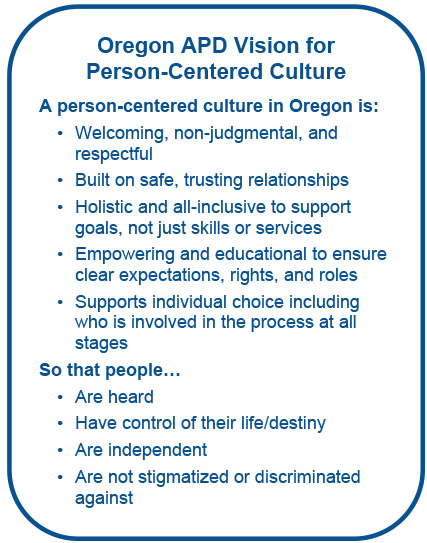
The Person-Centered Practices team at the Texas Health and Human Services Commission created a 16-minute video that is shown to all new HHSC hires as part of their orientation. In the video, people with lived experiences, their families, and HHSC staff share their personal and professional experiences with person-centered practices and the value of balancing what’s important to and important for people. As Terry Wendling, Person-Centered Practices Specialist puts it, “Being person-centered is not just for people with disabilities. It’s for all people.”